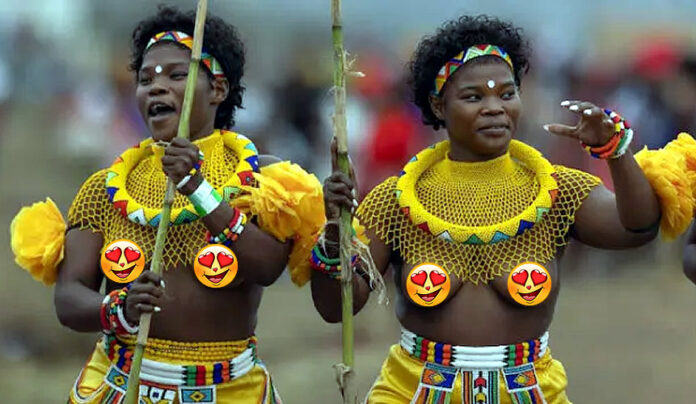Award-winning duo, the Qwabe Twins, have spoken out about their commitment to preserving their virginity, urging young female musicians to follow in their footsteps and embrace their cultures.
The twins, whose hit video "Hamba" has amassed over 22-million views on YouTube, were among throngs of maidens who attended the annual reed dance at the weekend.
The culturally significant ceremony was held at the royal palace of Enyokeni, about 90 minutes away from the rural town of Nongoma, north of the province. Nongoma is also considered the heart of the Zulu kingdom.
"We are motivating and showing women in our age that you can be a known musician, but also preserve your virginity. The reed dance is very important, and it has played a pivotal role in our lives," the 26-year-old identical twins said.
The twins, born and bred in Nonoti under the KwaDukuza local municipality, KwaZulu-Natal north coast, have become prominent figures in the South African music scene, their success story a testament to their talent and dedication. However, their message goes beyond music, extending to a deeply personal and cultural message.
One of the well-known cultural highlights of KwaZulu-Natal, the long-standing event marked 40 years since it was resurrected by the late AmaZulu King Goodwill Zwelithini kaBhekuZulu. In order to symbolise their purity, thousands of Zulu maidens with bare breasts and short beaded skirts gather in a single location known as the "indawo engcwele" (holy place) for the ceremony. It is considered a celebratory occasion showcasing the rich heritage of the Zulu nation.
The Qwabe Twins also took issue with insufficient transport for scores of maidens who were left behind and could not attend the annual event.
"It was very disappointing and hurtful to see many maidens who had been undergoing virginity testing in their own areas throughout the year in preparation for the reed dance left behind. They were looking forward to attending the main event. But they were left behind because of the inadequate transport."
The event, commonly referred to as Umkhosi Womhlanga (reed), derives its name from the reeds that grow on the riverbed. After passing the virginity test, the women carry the reeds in procession to the Zulu King, MisuZulu KaZwelithini.
The method, presided over by older women, involves examining the girl’s hymen to see whether it is still intact. As the maidens prepare to hand over the reed to the king, it is believed that any woman who was no longer a virgin would have her reed bend.
The virginity test has remained a contested terrain in public discourse, with women’s rights organisations pushing for it to be banned. The organisations claim, among other things, that it is torture and a violation of women’s rights.
Others say the practice is also discriminatory to women who are no longer virgins, some whose virginity was forcefully taken away through forced sex.











